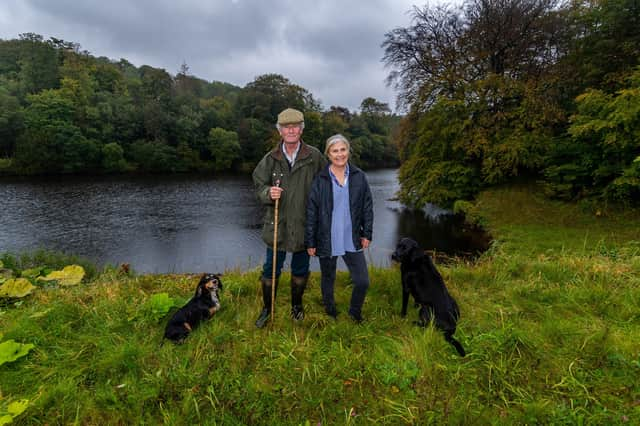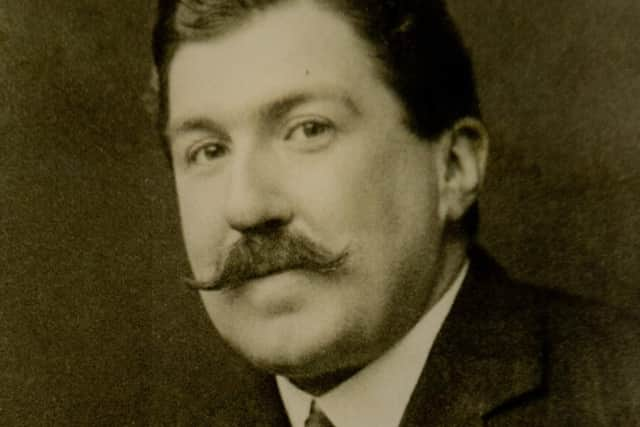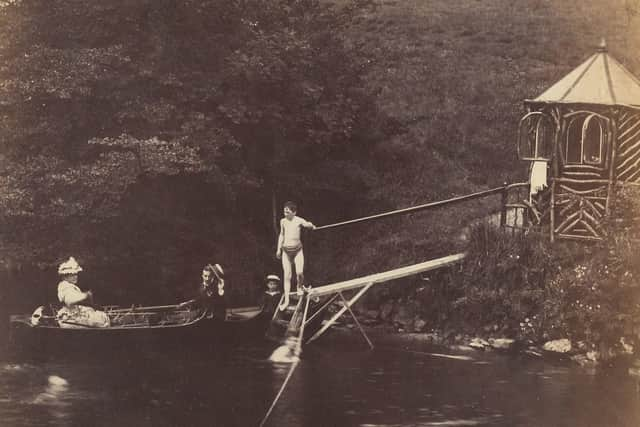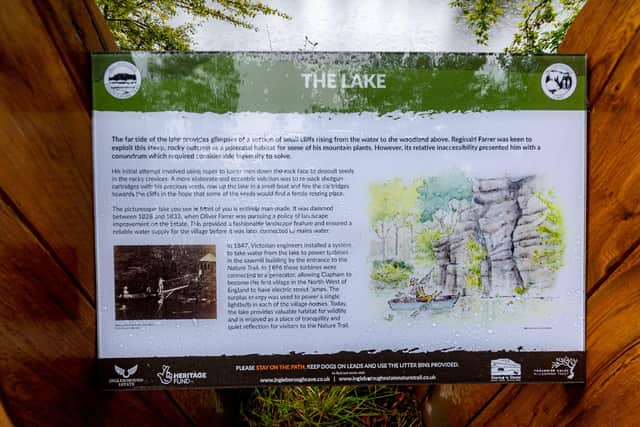Reginald Farrer, the shotgun gardener who changed landscape of the Dales


Reginald Farrer is remembered as the father of the English rock garden, but any celebration of his centenary this month will be as veiled as his life itself.
The walks and talks planned in the rockery that formed part of his family home, Ingleborough Hall, have been abandoned to the pandemic; a garden party in his honour postponed indefinitely.
Advertisement
Hide AdAdvertisement
Hide Ad“It’s very sad that it can’t now happen,” said his descendant, the botanic artist Annie Farrer.


Yet the anniversary has fuelled new interest in the life and career of one of Yorkshire’s most eccentric outdoorsmen – a pioneering plant hunter who came back from China and Nepal with seeds that helped define the British garden of today.
Below the limestone fells In his home village of Clapham, he propagated Himalayan plants by loading his gun with their seeds and blasting them into the gorge where they still grow wild. He published books and richly illustrated them with impressions of the species he discovered.
But, said Ms Farrer, he remained a tormented soul. A homosexual at a time when it was a trait that dared not speak its name, and with a debilitating speech defect caused by the cleft palate he his beneath his moustache, he had few known relationships.
“He lost himself in his plants,” said Ms Farrer.


Advertisement
Hide AdAdvertisement
Hide Ad“He didn’t want to conform. He didn’t like the stuffed shirts of his era. He was ahead of his time but a fish out of water.”
Yet it was not his private life that outraged his family on the Ingleborough Estate, nor his diet of whisky and chocolate, but his conversion to Buddhism, which he flaunted in elaborate robes.
“In those days in the village, even tenants would have been expected to go to church on Sundays, and Reginald was not in that mould,” said his descendant Philip Farrer, who with his wife, Maria, runs the estate today.
“He was clearly a man of principles. And it must have been very difficult in that era to be different.”


Advertisement
Hide AdAdvertisement
Hide AdMrs Farrer, who had organised many of the events planned for his centenary, said: “His Buddhism made his family fear for his eternal life. But I think he had a naughty streak in him. He liked to shock, and you can see in his writing that he enjoyed giving people a wake-up call now and again.
“If he had been born in our time, he would have been the most extraordinarily marvellous person. I can’t look at the landscape without thinking of him and his expertise in growing exotic plants in the most inhospitable habitat.”
Annie Farrer, who followed in Reginald’s footsteps and forged a career that took her to Kew Gardens, said there had been method in his apparent madness at shooting seeds into a rock face.
“He wouldn’t just have fired indiscriminately – he was mimicking the natural process of seeds carried on the wind,” she said. “His legacy was to revolutionise people’s ideas about what a rock garden was. It wasn’t just a mound of earth with rocks stuck in it.”
Advertisement
Hide AdAdvertisement
Hide AdReginald Farrer died in October 1920, aged 40, on an expedition to China’s Min Mountains. He is buried near the Chinese border in present-day Myanmar.
His legacy is a spectacular display of plants from the far east, growing wild around Ingleborough and including bamboo and Himalayan rhododendron. A woodland trail in the Dales, named after him, leads to the Ingleborough Show Cave, which includes the deepest waterfall in England.
Farrer’s old family home, Ingleborough Hall, became a school and is now an outdoor education centre run by Bradford Council.
Support The Yorkshire Post and become a subscriber today.
Your subscription will help us to continue to bring quality news to the people of Yorkshire. In return, you’ll see fewer ads on site, get free access to our app and receive exclusive members-only offers.
Advertisement
Hide AdAdvertisement
Hide AdSo, please – if you can – pay for our work. Just £5 per month is the starting point. If you think that which we are trying to achieve is worth more, you can pay us what you think we are worth. By doing so, you will be investing in something that is becoming increasingly rare. Independent journalism that cares less about right and left and more about right and wrong. Journalism you can trust.
Thank you
James Mitchinson
Comment Guidelines
National World encourages reader discussion on our stories. User feedback, insights and back-and-forth exchanges add a rich layer of context to reporting. Please review our Community Guidelines before commenting.